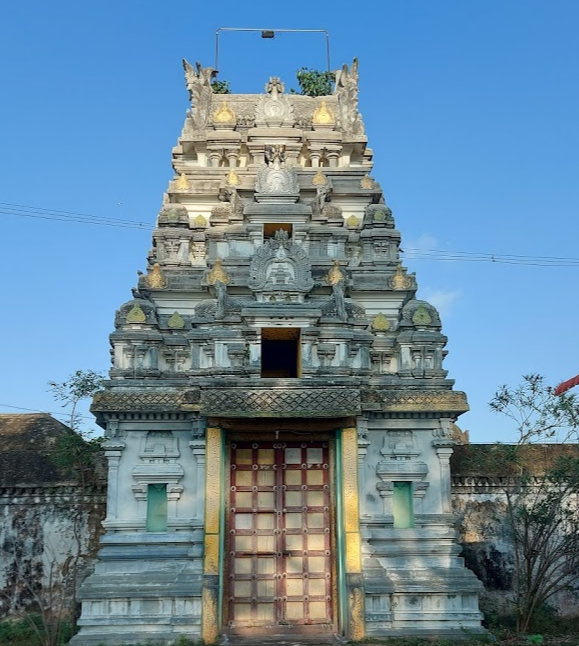Origin/History :-
The Venni Karumbeswarar Temple, located in Koil Venni, is historically significant as the birthplace of the Tamil scholar Vennikuyathiar from the Sangam Age. One of her songs in Purananuru references the Battle of Venni (Vennippor), a major war fought around 190 CE between the Chola king Karikala and the Pandya and Chera rulers. This battle resulted in a decisive victory for Karikala Chola, leading to the starvation and death of Chera King Uthiyan Cheralathan.
Karikala Chola, who was blessed by Mother Pidari Amman, won this battle at the age of 18 and credited his victory to her divine blessings. In celebration of his success, he contributed significantly to the development and renovation of this temple. Emperor Muchukunda is also believed to have played a role in the temple's restoration.
The temple is further glorified in the Thevaram hymns sung by Tamil Saivite saints Tirugnanasambandar and Thirunavukkarasar during the 7th century CE. Devotees of Pidari Amman are believed to be protected from enemies, a sentiment recorded in an epigraphic note mentioning this as a "Great Victory."
This historical context ties the temple to significant events in early Tamil history, particularly the reign and achievements of Karikala Chola.
Puranic Significance :-
area around the temple was once filled with dense sugarcane fields. Two sages visiting this region sensed Lord Shiva’s presence. One sage proposed that the sacred tree of the temple should be sugarcane, while the other believed it should be Venni (Nandhiavartham). As they debated, a divine voice from Lord Shiva declared that both trees would be accepted as sacred.
Thus, Lord Shiva came to be worshipped as Karumbeswarar in Tamil and Rasapureeswarar in Sanskrit. The place was initially called Venniyur, after the Venni tree, but over time, it became known as Koil Venni.
